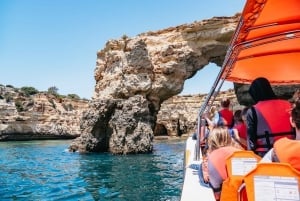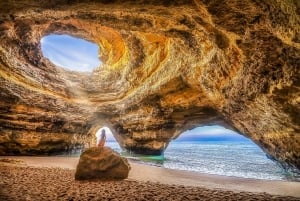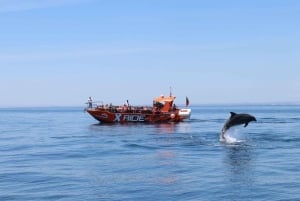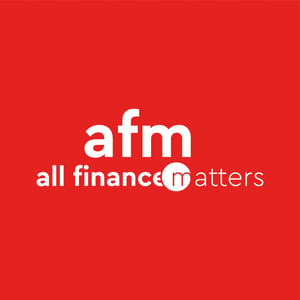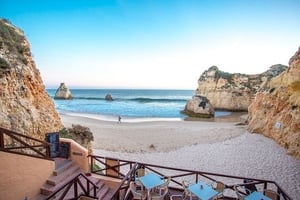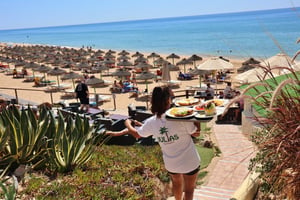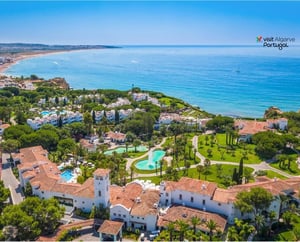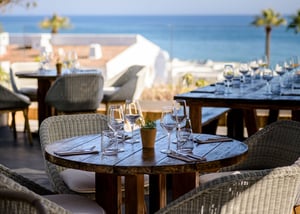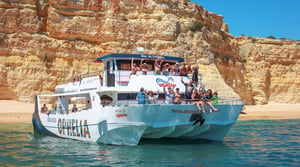Rental Property Capital Gains Tax: What has changed?
by All Finance Matters
Book Top Experiences and Tours in Algarve:
If youʻre booking your trip to Algarve last minute, we have you covered. Below are some of the top tours and experiences!- From Albufeira: Half-Day Winery Tour and Silves
- Algarve: Landscapes, Pottery, and Winery Tour
- Portimão: Pirate Ship Cave Cruise
- Loulé: TechSalt’s Rock-Salt Mine Tour
- Vilamoura: Benagil Cave Boat Tour with Entry&Dolphin search
All Finance Matters, with offices in Tavira and Faro, offer expert and friendly advice on all financial and taxation matters. They provide accounting services as well as tax consultancy, advice and assistance on insurance, mortgages, fiscal representation and more. Integrity, confidentiality and objectivity are the hallmarks of their service.
In the article below, Ricardo Chaves, chartered accountant, explores the changes to Captal Gains tax on rental properties and the possible impact this may have on your tax bill.
Find out more about All Finance Matters
Capital Gain Tax on rental properties: what has changed?
by Ricardo Chaves, All Finance Matters.
There are new rules applicable to the taxation of capital gains, on properties that are registered for Local Lodging activity. These new rules can be more beneficial for some but can also be more penalising for others. It’s important to understand what the implications are and what you intend to do with your property in the future, to make the most sensible choice.
Please note that the taxpayers must choose between the old and new regime and this choice can only be made in this year’s tax return (IRS).
What are the main changes?
When you register for a Rental License (AL) you also register your business activity with the tax office. As this activity is carried out in your property, it means that you are transferring the property from your personal sphere into your business sphere. This transfer is virtual and up until 2021 could trigger capital gain taxes.
For instance, if you wanted to stop the activity and there was a capital gain on the property, it meant that simply because you were stopping the activity and transferring back to your personal sphere, you could be liable for a capital gains tax.
Now this problem does not exist anymore, with the new regime there is no capital gain tax due when transferring the property from or into the personal sphere neither is there capital gain taxes when stopping the activity.
Does it mean that in the old regime I would pay capital gain tax twice?
Not necessary and that is why tax planning is critical. When registering the activity and reporting the value of the virtual transfer, this should be done in a way that if the activity stops, there is no capital gain tax liability (or at least would be minimal) and this would only exist when the property was sold. But not always was possible and this regime was more penalising for those that were resident and had for instance inherited a property.
Does this affect all the properties in AL?
No, all those that registered for the AL business after January 2021 will only be able to choose the new rules. Also, this is only applicable to those owners that explore the properties directly, in other words, when they are cumulative the property owners, the holders of the Rental License and the beneficiaries of the rental income. If for instance the license is owned by a third party, a rental agent, or a relative, etc this is not a problem. Also, if you are not renting as a business, but declare it as rental income (paying the higher 28% tax rate) then this problem also does not exist.
Is the new regime better for future CGT calculation?
If, for instance, you stop the rental activity for 3 years before selling the property, this regime is a lot easier. Because if the property is sold 3 years after the date of cancellation of activity, the capital gain is calculated as if the property was never under a business and all rules of private sale of property apply.
However, if you decide to stop the activity this year and sell in 2023, then if you are resident, it should be better to do it under the old regime, because under the new regime the capital gain tax will be levied on 95% on the gain, even when you are resident. But with the old regime only 50% of the gain would be taxed in case you were resident.
So which regime should I choose?
The decision depends on your personal circumstances and what you intend to do with the property in the future. Are you planning to stop your activity and put your house in the market? Are you planning to become tax resident in Portugal and live in that property to later sell it? Did you make considerable refurbishments to the property, during your AL activity?
Depending on the answers to these and other questions, it may be better to choose one or the other regime.
Examples of the CGT in the new regime:
Robert had a property on the local lodging activity from 2018, until 2022. The property cost him 250.000€ and he stopped the activity so he can sell it in 2023 for 300.000€.
Normally his gain would be 50.000€, however as the property was in the AL business, he will have to add 1.5% of 250k for the 5 years that he had the property in the AL business. This means that the Capital Gain is calculated not on 50.000€, but 68.780€.
Robert decided that he wants to stop the activity in his name and register the activity in the name of his rental agent. He will now pay more rental tax, but then if he decides to sell the property in the future, providing he does it later than 3 years from now, then the normal CGT rules apply and he will pay tax on 50.000€ of gain.








